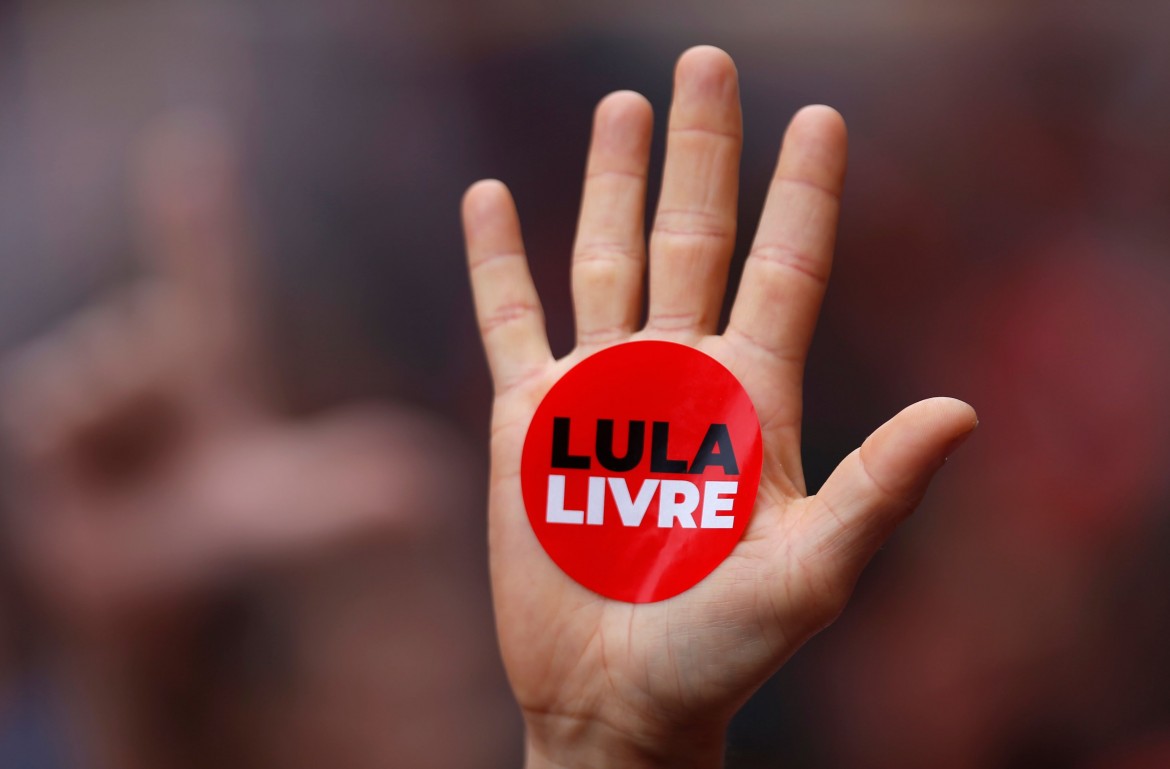Commentary
Lula’s freedom rekindles hope across Latin America
Lula is a symbol of hope and dignity for a continent in flames, desperately in need of social justice.

Lula is free, and this has rekindled hopes across Brazil and Latin America. “A man who has become a symbol is returned to us,” said former Uruguayan President Pepe Mujica. He is a symbol for dignity, justice and social equality, a symbol for the fight against poverty and for national sovereignty.
Released from prison after spending 580 days in jail, the former Brazilian president insisted once more: “It is not me whom they wanted to imprison, but an idea.” And he is willing to promote that idea of social justice and the integration of Latin America “more forcefully than before.”
Just emerged from Curitiba prison, Lula has already become the figure of the “anti-Bolsonaro”—the nemesis of the president of racial and gender hatred, in the pocket of the landowners who are destroying the forests and Pentecostal fundamentalists, whose most notable policy is “guns for everyone.” And who also represents subservience to Donald Trump’s United States, as he demonstrated three days ago at the UN, when Brazil (in the company of Israel) voted in favor of the criminal embargo against Cuba.
Lula is also a symbol for a continent that has been on fire with protests for over a month. This is not, however, a new Red October. The protesters are not marching with the image of Che Guevara or singing the Internationale. The rebellion and discontent that began near the Rio Bravo and stretched all the way down to Patagonia, involving the indigenous and young people, women and the middle classes, is against a neoliberal politics that is pushing them down—as an increasingly large share of the continent’s 600 million inhabitants, now 10.2%, is living in poverty—all of them kept far removed from a socio-economic elite which is appropriating the greatest part of the wealth. The elite is also endangering the future of young people, with an environmental policy dangerously subservient to the dogmas of consumer society.
The Latin American subcontinent is not the poorest region of the planet, but it is the one with the highest levels of inequality. Out of the 10 countries with the highest Gini index—a measure of socio-economic inequality—only two are not Latin American (South Africa and Rwanda).
If we add to this situation the fact that Latin America is the region that has suffered the most from the global crisis—it will grow by just 0.2% year over year, according to the IMF—it is understandable why the common spark that unites these outbreaks of rebellion is the cry of “ya basta” of the Chilean youth, who want to do away with the legacy of Pinochet and the Chicago Boys. The latter, as Joseph Stiglitz recounted (in his The Price of Inequality), have been preaching for 30 years that neoliberal policies would produce wealth at a more rapid rate, whose benefits would then propagate downwards, ensuring a better life for all. Stiglitz foresaw that the evidence on record—showing that such policies don’t produce much more than inequality—would lead to a distrust in the ruling elites and would erode the rule of law.
The contempt for the type of politics pursued by governments and the ruling classes does not, however, imply disillusionment about politics as such. Quite the contrary: the current struggles—especially in Chile—and the results of the latest elections show that there is a civil society that wants to be a protagonist on the political stage. What is taking place cannot be interpreted (only) according to the left-right axis. According to Marta Lagos, head of Latinobarometro, “today, the people don’t vote for the left or the right, but for those who are proposing solutions to their problems.”
The redistributive policies implemented by progressive governments during the decade of the Latin American “pink tide”—following Lula’s first election victory in 2003—which were then continued in Venezuela and Bolivia, have not changed the orientation of the system of extractivist development based on the exploitation of commodities. Furthermore, they have also failed to increase grassroots participation and ensure a widespread political culture.
Lula is free for now, but he has not been acquitted. Only if he can get his appeals court sentence overturned will he be able to return to active politics and enter the battlefield to win the presidency of Brazil. However, as Mujica said, he is already able to represent the progressive and pragmatic leader who can channel the people’s voice as it arises from the popular uprisings.
He is an example for the leaders of the “pink tide”—Mujica, Correa (Ecuador), Lugo (Paraguay), Roussef (Brazil)—which met this week in Buenos Aires along with 20 other progressive leaders of the Gruppo di Puebla, called by the newly elected Argentinian president Alberto Fernandez to outline a program of integration for Latin America and economic and social policies to address the crisis that is gripping the subcontinent.
The leaders of Cuba, Venezuela and Nicaragua, who form the radical wing of the progressive pack, have chosen not to participate.
But Havana, along with Caracas, remains on the front lines, taking the flak from the attacks that are coming from the powerful neighbor to the north. The events taking place in Bolivia, where we are seeing an ongoing coup which has been planned for months by the US Embassy and is being implemented by the civic committees led by Camacho, threatening secession of the three great population centers—Santa Cruz, Cochabamba and Sucre—if President Evo Morales doesn’t resign, is particularly worrying for the Cuban leadership. Donald Trump has put into place no less than 187 measures against the island since he was elected. The embargo has become a ruthless economic and trade war, but it has not been able to bring Cuba to its knees.
In the climate surrounding the upcoming presidential elections, an escalation of Trump’s interventionism cannot be ruled out.
Originally published at https://ilmanifesto.it/lula-libero-riaccende-la-speranza/ on 2019-11-10
